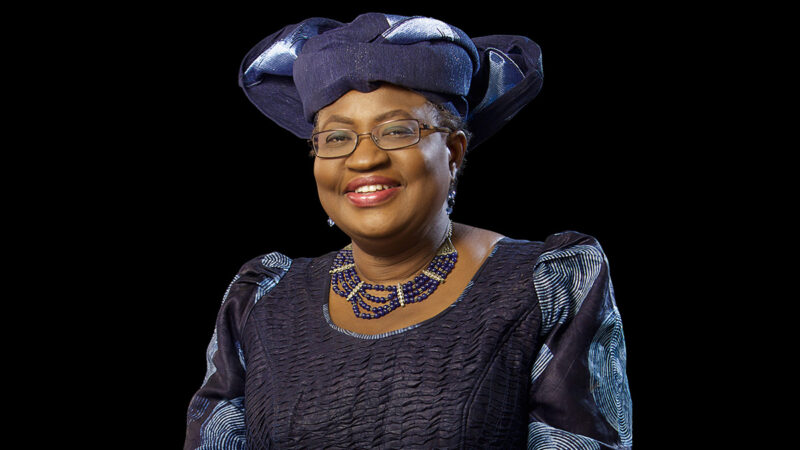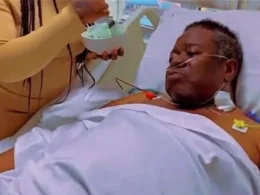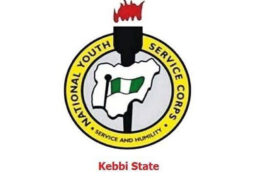WTO Director-General, Ngozi Okonjo-Iweala, Sounds the Alarm on Nigeria’s Negative GDP Growth and Calls for Policy Consistency
Nigeria’s economic health has been steadily declining since 2014, with the country’s average Gross Domestic Product (GDP) growth rate turning negative, a trend that has far-reaching implications for the well-being of its citizens. This alarming revelation was made by Dr. Ngozi Okonjo-Iweala, Director-General of the World Trade Organization (WTO), during her keynote address at the Nigerian Bar Association’s (NBA) Annual General Conference on Sunday.
Speaking at the conference, Okonjo-Iweala highlighted the stark contrast between Nigeria’s economic performance during the decade from 2000 to 2014 and the period that followed. According to her, the country’s GDP growth rate averaged 3.8% during that earlier decade, significantly outpacing the population growth rate of 2.6% per annum. This led to tangible improvements in the standard of living for the average Nigerian.
However, since 2014, this positive momentum has reversed, with the average GDP growth rate plunging to -0.9%, indicating that the economy has been contracting rather than growing.
“During the decade between 2000 and 2014, we had an average GDP growth rate of 3.8%, well above our population growth rate of 2.6% per annum—meaning that people were, on average, truly improving their standard of living.
But in the following decade, average annual GDP per capita has been negative, around minus 0.9%, meaning people were worse off because we were not able to sustain prior positive growth momentum.”
The Call for Policy Consistency
Okonjo-Iweala stressed the urgent need for Nigeria to maintain consistent and effective economic policies, regardless of which political party is in power. She pointed out that the inconsistent policies and lack of continuity between administrations have contributed to the nation’s economic decline.
“Maintaining good economic and social policies, maintaining policy consistency, and adding more reforms on top of that will lead us along the path of good progress that we all desire.
Policy inconsistencies have accounted for the reversal in the fortune of the nation’s economic development.”
A Call for a New Social Contract
The former Finance Minister also advocated for a new social contract between the government and the people, one that transcends political affiliations and focuses on sustained economic growth. She emphasized that such a contract should be broadly accepted and adhered to, ensuring that critical economic policies remain consistent, regardless of which administration is in power. Check out Nigeria Needs Unity, Not A Blame Game – Ngozi Okonjo Iweala Calls For A New Social Contract
What You Should Know
- Nigeria’s economic challenges are multifaceted. According to the latest report from the National Bureau of Statistics (NBS), Nigeria’s GDP growth declined to 2.98% in the first quarter of 2024, down from 3.46% in the fourth quarter of 2023. Despite this decline, the GDP growth rate for the quarter was still higher than the 2.31% recorded in the corresponding quarter of 2023.
- The GDP growth rate is a crucial indicator of economic activity, reflecting the overall health of the economy. Nigeria’s economic growth has been hampered by a combination of factors, including reduced oil exports, low revenues, and broader economic challenges. These issues are compounded by rising inflation, high unemployment, and increasing national debt, which have all contributed to the country’s economic woes.
- Meanwhile, President Bola Tinubu has set an ambitious goal to increase Nigeria’s GDP to a $1 trillion economy. However, many analysts remain skeptical about the feasibility of this target given the current economic conditions.






![Breaking: Missing Female Gym Instructor Linked to Aba Missing Girls Suspect, Andrew Ocheckwo [VIDEO] Breaking: Missing Female Gym Instructor Linked to Aba Missing Girls Suspect, Andrew Ocheckwo [VIDEO]](https://reportafrique.com/wp-content/uploads/2024/06/missing-female-gym-instructr-andrew-ocheckwo-260x195.avif)



Join our Channel...